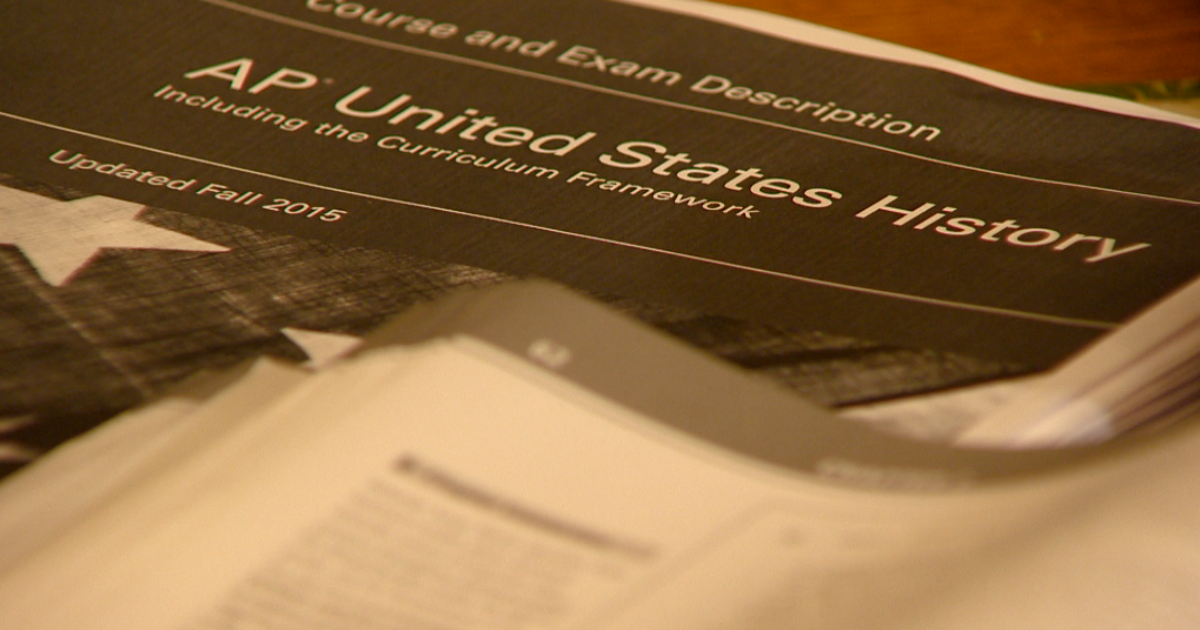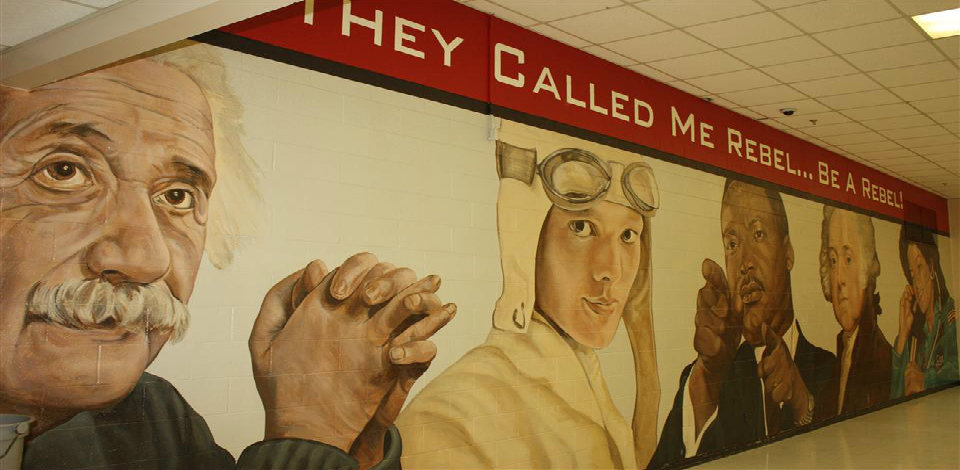It has been almost a year since my last post, a product of a very busy year that has left little time to write. This past school year witnessed the launch of the new AP U.S. History curriculum, in my classroom and throughout the nation. The newly designed framework has been met with much controversy and enough concern to warrant revisions for the upcoming school year.
Despite Vice President of AP Trevor Parker dismissing the criticisms in a recent letter to all "APUSH" teachers (link), I must respectfully disagree with his characterization of these criticisms as "egregious misrepresentations." While this particular teacher welcomed the functional changes to the exam and especially its emphasis on the skills of a historian, the concept outline did present a perspective of United States history concerning to some, including me. Those who subscribe to a Howard Zinn view of history will find nothing wrong in the framework; however, an overemphasis of some topics and a lack of inclusion of others is startling, at least in my opinion. Regardless of the "perspective" of the new curriculum, the new framework does allow for flexibility. Therefore, it has been my goal over the past
year to provide the appropriate balance of historical interpretation. As I frequently mention in class, my job is not to teach what to think, but how to think. Simply because I disagree with the emphasis on negative elements of our history does not mean that I ignore those aspects or cover them with less attention. I believe that our nation's history stands as one of the most remarkable in history and despite our faults, there is much to celebrate about a nation that just in recent decades rid the world of totalitarianism and has done more than any other to promote freedom and democracy around the globe. However, in celebrating our past, we must come to terms with mistakes and failures. Historian Paul Johnson (1998) said it best, "America is a great problem-creating country but also a great problem-solving country." He offers this example: America "created chattel slavery on a scale never before experienced in the world, but it solved it after much time, blood, sweat and tears." The effects of this are still a work in progress today, but at least we enjoy the freedom to debate and discern how to address problems and resolve controversy. Not everyone in this world is as fortunate.
 |
| Since writing this blog post while on vacation in the Carolina Mountains, the College Board has just released the "updated" version, shown here. (Credit: 9news.com) |
 |
| Carving to Confederate Generals on Stone Mountain, Georgia (credit: WSB-TV) |
 |
| Mural from the Nathan B. Forrest High School Cafeteria. The school's name was changed to Westside High for the 2014-2015 school year. (Source: wjct.org) |
This is what keeps my job exhilarating. Students sometimes question why I remain so excited about teaching the "same story" over and over. The reality is that each of the past eleven years has been different. Each year offers some new perspective or some new interest based upon a recent book I have read or some new controversy in the news. The integration of technology and the evolution of how we learn in the classroom also continues to evolve. I continue to evolve in my own teaching as I release more of the responsibility for learning to the students themselves. While this may cause concern for some in the profession (oh no, what if they get it wrong?), the results have been truly remarkable. Just in the past year, I've watched students produce compelling and engaging presentations of historical material, address topics outside the normal curriculum and make learning personal by interviewing family members on their experience with past events and using what they learned to produce moving tributes to their past generation or even specifically to members of their family.
The study of history deserves - rather, our youth deserve a genuine opportunity to learn history and in doing so, to make their own decisions regarding interpretation. Gone are the days where students learned simply what a textbook author deemed important. Students must have the freedom to evaluate the past, good and bad, as well as evaluate the implications of the past on their lives and our society. I hope that the forthcoming revision to the "revised framework" will restore an appropriate balance to the historical narrative and will return some important topics noticeably absent in its current form. Regardless of what the College Board decides, in my classroom, we will continue to consider all perspectives and all sides, while also allowing students to offer their own interpretations and interests. We will engage the historical thinking skills that the new curriculum appropriately requires while challenging all perspectives of the past.
I close by offering a sampling of the AP curriculum controversy:
Note: I have read several pieces by Ketchum, including his insightful biography of James Madison.
Note: McPherson is one of the most respected historians in the field today






